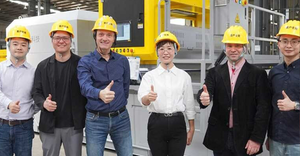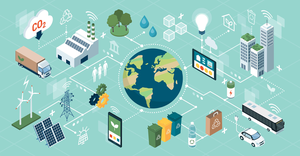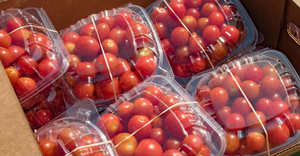Debunking recycling’s most persistent urban myths.
Urban myths are those bizarre stories that people believe to be true, even though they aren't. A classic example of an urban myth is the belief that alligators live in the New York City sewer system. Alas, they don't. Recycling, like most things, has its share of urban myths.
Some of these are frivolous. One persistent idea is that pull tabs from aluminum cans have a special redemption value that can be used to buy time on dialysis machines or other medical equipment. In fact, they don't, much to the sorrow of people who have collected thousands of pull tabs believing they would be easing someone's pain.
Another myth insists that you can buy a thousand dollars worth of beer, sell the empty aluminum cans for $250 and have a better investment than if you had spent the same amount of money buying Enron stock. While it may be true that the cans are worth more than the stock, a thousand dollars of the cheapest beer on the market won't produce anything near $250 in aluminum cans. By my calculation, your investment would yield about $77 based on mid-January prices. And the beer would be awful.
But some urban myths have the power to harm recycling programs because they are misleading. Take, for example, the myth that “recycling doesn't cost anything.” I wish! Collecting and processing recyclables costs money, just like collecting and disposing of trash. A garbage truck can collect more material, at less cost, than a recycling truck because garbage can be compacted while recyclables can't. Recyclables also incur costs as they are processed for resale, while trash only requires a tipping fee for its disposal. True, recyclables can be sold to end markets while garbage can't. But until end market prices completely cover collection and processing costs, recycling won't be free.
Another myth is that “recycled products are inferior to new products.” In fact, most products made from recyclables can't be distinguished from products that aren't. Products that are made from used aluminum, steel, glass, plastic or paper must meet the same manufacturing specifications as they did when they were made from virgin raw materials. When it comes to quality, recycled products are as good as new!
However, it is true that secondary markets don't pay as well when recyclables aren't made into the same product as before. For instance, old newspapers are less valuable when they are made into paperboard instead of new newsprint.
The most persistent myth holds that “recycling is bad for the environment because it creates pollution.” Like many urban myths, this one has a grain of truth. Recycling is an industrial process. Like all industrial processes, it has an environmental impact. However, life cycle studies show that recycling usually has less impact on the environment and requires less energy than making products out of virgin materials. This is because the environmental and energy impact of extracting virgin materials from the soil or from forests, transforming them into raw materials and then turning them into an end product is greater than the environmental and energy impact of collecting those products, processing them and using them as raw materials to make new products.
So just remember, when it comes to recycling, if it sounds too good (or too bad) to be true, it probably isn't!
Opinions in this column do not necessarily reflect the National Solid Wastes Management Association or the Environmental Industry Associations. E-mail the author at: [email protected].
The columnist is state programs director for the Environmental Industry Associations, Washington, D.C.
About the Author(s)
You May Also Like




